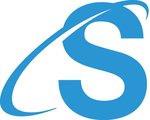Dublin based pharmaceutical multinational Shire plc raised its 2014 guidance on Friday, despite being jilted by AbbVie on a $55 billion acquisition deal earlier this week.
Shire’s shares were up by 2.5% in early trading in London on Friday after taking a nosedive following AbbVie’s decision to abandon the merger deal.
AbbVie decided not to go ahead with Shire’s acquisition after the US Treasury Department cracked down tax inversion, i.e. it is no longer as advantageous for US-based companies to make merger deals with foreign companies and move their HQ abroad.
Shire’s third-quarter earnings per ADS jumped 60% to $2.93 on revenue of $1.6 billion, which had grown by nearly one third.
The company, which is listed in the London Stock Exchange as well as Nasdaq, forecasts full-year earnings growth in the high 30% range, compared to its July’s prediction which was in the low-to-mid 30% range.
Flemming Ornskov believes Shire has an excellent future as a standalone company.
Shire’s Chairman, Susan Kilsby, commented:
“Shire is well-positioned for future growth as we implement our plan to double product sales to $10 billion by 2020. I am confident that Shire, as an independent company, will deliver long-term value to our shareholders and improved outcomes for patients. On behalf of the Board of Directors, I would like to thank the Shire management team and employees for the achievement of outstanding financial results during the third quarter.”
Flemming Ornskov, M.D., Shire’s Chief Executive Officer, said the company’s strong third quarter result is an example of its exceptional track record at delivering value and growth for shareholders.
Dr. Ornskov says sales have increased across its portfolio, with all its top-ten medications delivering double-digit growth in Q3 2014.
Shire’s largest business unit, Rare Diseases, saw sales increase by 66%, partly driven by the acquisition of ViroPharma.
Hereditary angioedema drug Cinryze achieved sales of $145 million, while Firazyr (also for treating hereditary angioedema) saw sales increase by 57%.
ADHD medication Vyvanse sales grew by 19% and those of inflammatory bowel disease drug Lialda were 24% up.


